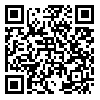BibTeX | RIS | EndNote | Medlars | ProCite | Reference Manager | RefWorks
Send citation to:
URL: http://rehabilitationj.uswr.ac.ir/article-1-606-en.html
Objective: There are many traumatic events (including natural disasters, physical, psychological and sexual abuse) that may befall children and there is clear evidence that such experiences can produce a plethora of negative psychological effects. Children’s exposure to such traumas has been associated with a wide variety of negative mental health outcomes, including anxiety and depression, post-traumatic stress and dissociation and anger and aggression. It seems that the impacts of traumatic events are significantly related to type and intensity of trauma.
Materials & Method: Through a systematized clustral sampling 3042 male and female students from junior high school who were participated in a survey study for investigating point prevalence of child abuse, completed Trauma Symptoms Checklist for Children-Alternate Version (TSCC-A) and Child Abuse Self-report Scale (CASRS). After recognition of abused children, they were compared based on trauma symptoms. TSCC-A is a self-report measure of post-traumatic distress and related psychological symptomatology in male and female children aged 8-16 years. It is useful in the evaluation of children who have experienced traumatic events, including physical and sexual assault, victimization by peers, major losses, the witnessing of violence done to others and natural disasters. TSCC-A makes no reference to sexual issues. CASRS is a self-report scale to assess child abuse and neglect with 38 items and four subscales (psychological abuse, neglect, physical and sexual abuse).
Results: Considering the type of traumatic experiences, the results showed that abused children significantly received higher scores in scales and subscales of TSCC-A than nonabused group. They specially reported more symptoms (depression, anxiety, post-traumatic stress, anger and dissociation) comparing normal children.
Conclusion: It is concluded that the type and rate of traumatic event is related to intensity of symptomatology.
Received: 1/09/2010 | Accepted: 18/10/2015 | Published: 18/10/2015
| Rights and permissions | |
 |
This work is licensed under a Creative Commons Attribution-NonCommercial 4.0 International License. |





